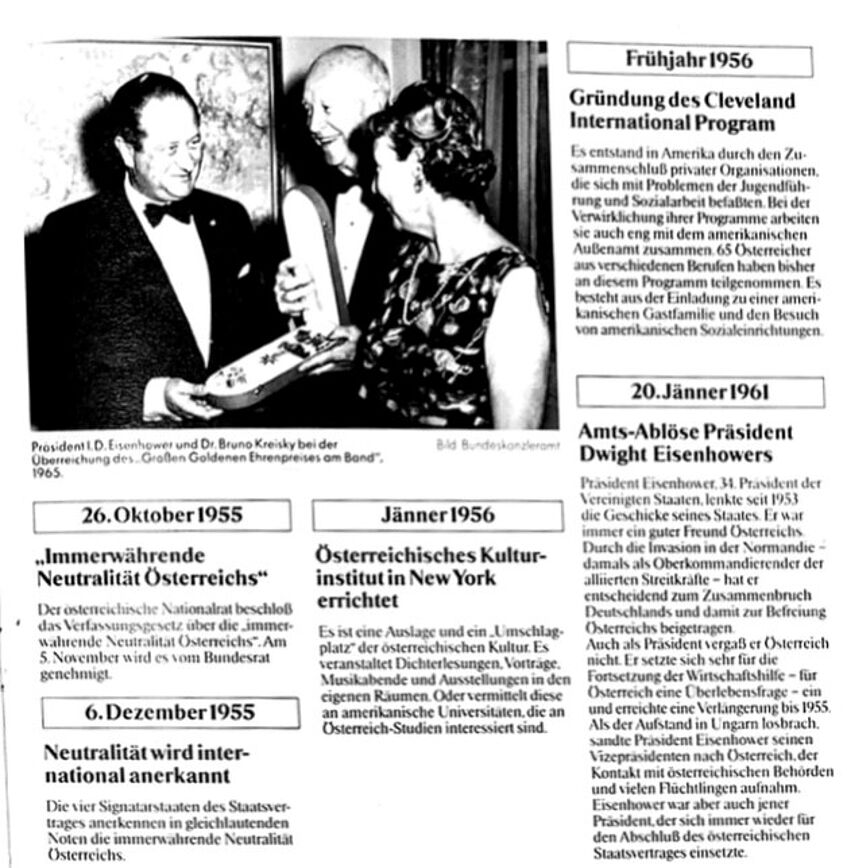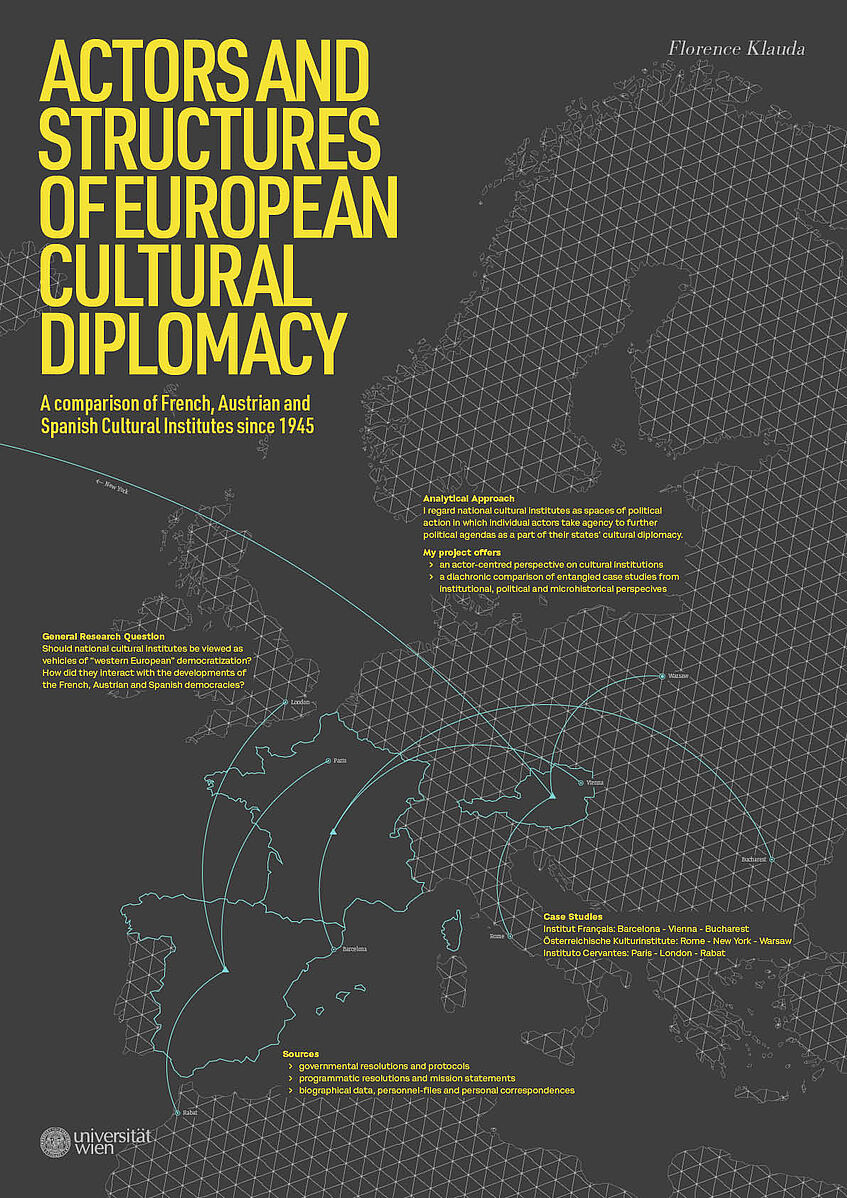Actors and Structures of European Cultural Diplomacy: A comparison of French, Austrian and Spanish Cultural Institutes since 1945
Actors and Structures of European Cultural Diplomacy: A comparison of French, Austrian and Spanish Cultural Institutes since 1945
Betreuerin: Univ. Prof.in Mag.a Dr.in Claudia Kraft
Projektdurchführung : Florence Klauda, BA MA
Finanzierung: DOC-Stipendium der Österreichischen Akademie der Wissenschaften, Marietta Blau Stipendium des Österreichischen Austauschdienstes
Laufzeit: 2020-2024
After 1945 a large number of rebuilt, renewed or newly created (western) European democracies established widespread cultural networks built around national institutions, such as national cultural institutes, as a part of their new approaches to cultural diplomacy. In promoting cultural exchange bilaterally these institutions opened up an arena in which international relations were fostered and political agendas were pursued beyond the constraints of traditional politics and diplomacy. They, therefore, have to be considered as political environments that contributed to the forging of democratic norms and standards of post-War western cultural diplomacy.
In that sense, the present project aims at investigating the extent to which national cultural institutes contributed to the development of western European democracies through the study of the French, Austrian and Spanish cases: the Instituts Français, the Österreichische Kulturinstitute and the Instituto Cervanes. Comparing the roles that national cultural institutes played in the French, Austrian and Spanish trajectories towards their current democracies after 1945 confronts the popular fallacy that presupposes the unity of western conceptions of democracy.
The present comparative analysis of the French, Austrian and Spanish cultural institutes sheds light on the asynchronicities and disparities of the European history of democracy. It thereby acknowledges the diversity of their countries’ democratic experiences and concepts and focusses the inquiry on the ways in which these institutions contributed to shaping their countries’ understanding of democracy in differing democratic environments. What were the political aims of the French, Austrian and Spanish cultural diplomacies in the countries that hosted their cultural institutes? How did these institutes respond to adversity resulting from anti-democratic settings or conflicting concepts of democracy? What influence did their individual actors have on their continued work?
To answer these questions the present project will examine three separate but complementary aspects relevant to these institutions’ functioning: the cultural institutes administrative system on the institutional level; their political outlook on the policy level and the actors who worked within the cultural institutes on the micro-level.


